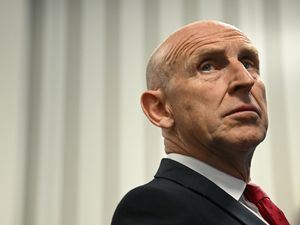Shropshire Star comment: Maths and English is fundamental to children's learning – whether they enjoy it or not
There was a time when it was called reading, writing and arithmetic.
And though methods of teaching and our descriptions of English and Maths have changed over the generations, their relevance to modern living has not.
Fundamental skills in the art of mathematics and the ability to read and write form the basis of many professions. Children leaving school with inadequate skills find themselves at the back of the pack, running to catch up.
They are at a distinct disadvantage and can look forward to a life of having to make do.
It is vital, therefore, that schools provide a good background in such rudimentary skills. But while academics agree upon that point, there is considerable debate over the way maths should be taught.
The introduction of a new check for times tables is being introduced in spring. And while that will send shudders through some pupils, it may prove advantageous.
Many will remember being taught their times tables in schools. It was a sometimes painful process, but the robotic repetition, many will argue, worked because they can still recite those times tables today. Just as pupils use mnemonics to improve and assist their memory – such as making river names into songs, or city titles into limericks – so the unemotional repetition of times tables can help people to remember.
There will be others of course, who question the relevance of learning them. Indeed, there have been periods when they have gone out of fashion and had a much lower profile in teaching.
That could be about to change, with trials taking place to test children in Year 4 on their times table knowledge. The issue of testing in primary schools is already hugely contentious, with Plenty of teachers and parents worrying that too much pressure is being put on everyone pupils (and teachers). However, others will argue that we have to drive up standards in order to produce educated children, who will be the engineers, scientists and thinkers of the future. The key is in getting that balance right and it is important the government listens to the feedback from the classrooms to make sure that whatever steps are taken will drive up standards.
Children have to leave school with core skills and maths is at the heart of that. Anything that can be done to assist in their education ought to be embraced – even if some youngsters might not like it.





